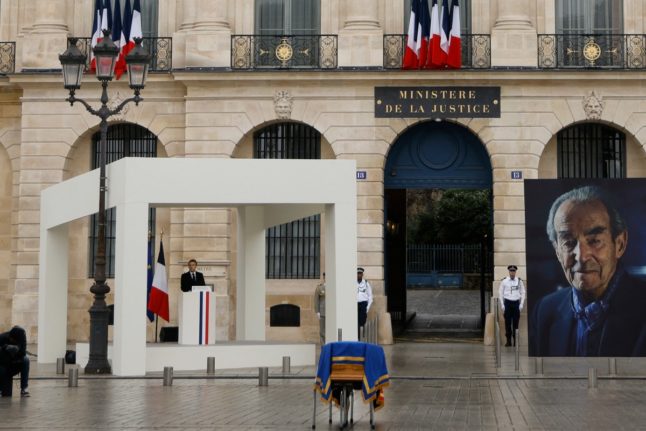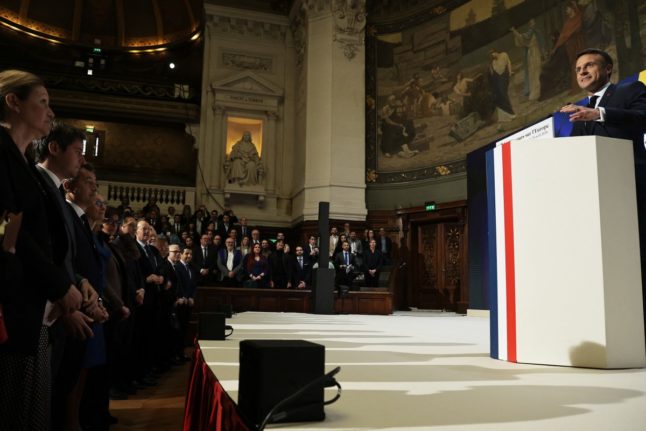Badinter, who died last week, should be entombed in France’s Pantheon in Paris, where its national heroes are laid to rest, Macron said at a memorial ceremony on Wednesday.
The Pantheon is reserved for the most exceptional figures from the worlds of politics, culture and science. Only the president can authorise a person’s entry to the former church.
READ MORE: France’s highest honour: Five things to know about the Paris Panthéon
Months after taking office under Socialist President Francois Mitterrand, Badinter successfully brought a law before parliament prohibiting capital punishment.
Badinter, who had practised as a lawyer, had been inspired to campaign for its abolition after one of his clients was beheaded. At the time, executions were carried out with the guillotine.
By the time he died at the age of 95, Badinter had become a widely respected public figure.
“He was a soul that cried out, a force that lives and snatches life from the hands of death,” Macron said at the memorial ceremony outside the French justice ministry on Place Vendome in Paris.
“Your name must be inscribed at the Pantheon alongside those who have done so much for human progress and for France, and who are now awaiting you,” he added.
But it was up to Badinter’s family to have the final word, he said.
Macron has so far used this authority for “Patheonisation” on four occasions.
Simone Veil, a former minister who pioneered France’s abortion law, received the honour in 2018; World War I writer Maurice Genevoix in 2020; and French-American dancer, singer, Resistance member and rights activist Josephine Baker in 2021.
Missak Manouchian, a hero of the French Resistance in World War II of Armenian origin who was executed by occupying Nazi forces in 1944, is to be entombed there on February 21.



 Please whitelist us to continue reading.
Please whitelist us to continue reading.
Member comments